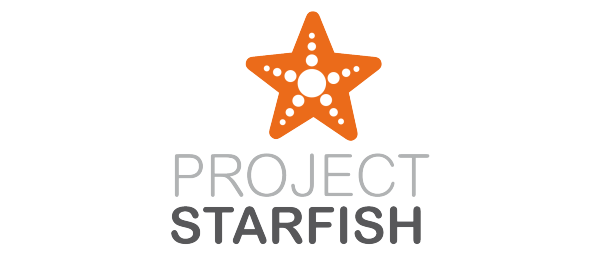Culture, as a whole, needs to learn about focus. Seeing the strengths of someone. Looking past any obstacles. Coming from the angle of ability.
Fact: There is a high level of unemployment for people with disabilities.
However, there is a passion to break the employment barriers.
Recently I connected with Project Starfish, a group that began as a startup at MIT in Boston. Their mission is to transform the lives of those with disabilities, personally and professionally. Project Starfish works to shatter the misconceptions of employment. They create change by training individuals, providing experience, and finding opportunities within various companies.
Experience leads to employment. And jobs lead to being integrated into the community.
We had a conference call and I listened to everyone’s stories. Eight of us talked on the phone. Karl Cedric Tangliben lives in the Philippines. Dhawal Ganatra is in the United Arab Emirates. Vijay Kumar, Upasana Kumar, and Dr. Kumar are in India. Nasreen Bhutta is in Canada, and the founder, Subhashish Acharya is in Boston. And I’m over here in Virginia.
I took notes, lots of them. I realized I had assumed something — I thought the misconceptions I face were attached to the American culture. Disability misconceptions exist, not only in the United States, but also worldwide.
Karl and Upasana are visually impaired and their stories sounded similar.
“In the Philippines…when they see blind people working, ‘Oh you’re working really? You shouldn’t be working. You should stay at home…and doing nothing basically. They’re thinking you’re not just visually impaired, but you’re deaf too,” Karl said.
Upasana shared, “Their mindset is clouded with disbelief…they stereotype you, ‘Okay, you have this disability. I don’t think you’ll be able to do this at all.’ They do not look at qualities. They do not look at strongpoints, the strengths.”
Dr. Kumar has a physical disability, and he added, “People do have preconceived notions. The problem is they say, ‘He is blind. That job he cannot do’…They don’t try to understand what are his abilities…They have a preconceived notion that we will not do any work, but be a hindrance to them.”
I’m constantly thinking of ways to spread disability awareness. I asked the group, “If you could design a t-shirt to teach awareness before someone approached you, what would it say?”
- “Hey, I’m Karl. Don’t be afraid to talk to me because I can talk and I can hear you. I can speak for myself.” -Karl
- “Hey guys, I may be physically disabled, but intellectually and mentally I’m self-confident. I can do all jobs that you people are doing, maybe not at the same pace, but still will be able to do it…No one in this world is perfect.”
-Dr. Kumar - “It’s all about surviving. Understand, accept, and be human.” -Upasana
- “Don’t write off people without giving them a chance. Disability is not a disqualification.” -Vijay
- “Empower and educate everybody. Visually impaired people can work at the same place, just like everyone, through using our technology.” -Dhawal
- “Everyone has flaws. Some you can see. Some you can’t. But we all have them. So everybody’s case is able and capable. Embrace it. Accept it.” -Nasreen
Subhashish summarized what they do at Project Starfish quite well: “changing the massive perceptions that society has about ability.” They work as teams and with businesses because this “drives inclusion.” He said, “We can only prove ability by doing stuff that other people cannot imagine.”
The first step in proving ability is to give members a professional identity through reskilling. They build knowledge and leadership skills. This happened for Dhawal by “enhancing skills to another level.” And Nasreen said she has “grown immensely, challenged [her] inner talents, become much more confident,” and she identified her own strengths while learning to “become more of an out of the box thinker!”
People are finding a new level of confidence and empowerment. The same people are making a difference in their own communities. I love the wisdom Karl offered, “in the disabled community, no one can really understand and can help you but yourself, and your community…When you help, and understand yourself, you can take it forward from there. You don’t need to pretend to be someone else, just show them your abilities, not your disability. And most importantly, be yourself.”
We are beyond disability.
We are beyond color.
We are beyond religion.
We are beyond countries…
We are breaking those perceptions that society has.
-Subhashish, Founder of Project Starfish
“There are no limitations…While society needs to change, I also think people with disabilities need to take a stride and do something different, which is: let’s create opportunities.”
What is the world telling us?
What are we telling the world by the way we live with our limits?
Ponder one thing you hope will change in culture or your own community. Share below in the comments and let’s consider what your next step forward could be.
Together is better, even when we live around the world.
To learn more about Project Starfish, please visit: pstarfish.org and 60minute.org. Connect with them on Facebook or follow them on Twitter: ProjectSTARF1SH, 60Minute2Impact, PSFAmerica. They also welcome phone calls at 781-262-0520.


